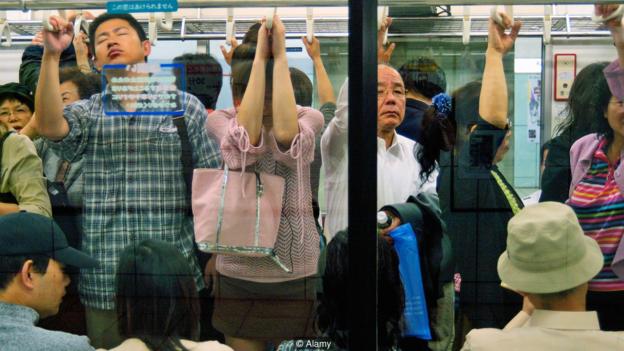(单词翻译:单击)

BBC News – Studies show that the growing distance between where we work and where we live can lead to burnout, poor sleeping habits, social isolation and even emotional problems for our children. Yet, newer research boldly argues that travelling to work could actually be a pretty important buffer separating home life from work life.
BBC新闻 – 研究显示,我们工作地点和生活地方之间日益增长的距离,可导致倦怠,不良睡眠习惯,社交孤立,甚至对自己孩子的情绪问题。然而,最新的研究大胆认为,上下班实际上可成为把家庭生活与工作过程分开的相当重要的缓冲。
An international team of researchers surveyed 225 employees of a large media company in London earlier this year and found that the longer they commuted, the less happy and emotionally satisfied they were with their jobs. However, this negative relationship between commute time and job satisfaction didn’t exist for people who scored higher in one trait: self-control.
某国际研究团队今年初调查了伦敦一家大型媒体公司的225名员工,发现上下班时间越长,他们从工作中感到的快乐和情感满足就越少。但是,对在自控力这一特质上得分较高的人来说,通勤时间与工作满意度之间的负相关关系并不存在。
People who have higher levels of self-control might ask themselves a series of questions on the morning commute, such as: What do I need to do today? How does that fit in with what I have to do this week? And will this play into my overall career goals?
自控程度较高的人可能会在早晨上班路上问自己一系列问题,比如:我今天需要做什么?这与我本周要做的如何一致?这在我的整体职业目标中会发挥作用吗?
By doing this for a few minutes each day on the morning commute, the study showed that people are better equipped to transition both psychologically and temporally from their home role (as a father, mother or housemate) to their work role (as a boss, subordinate or colleague) and, consequently, report fewer feelings of stress or burnout.
研究显示,通过每天早晨上班路上的几分钟自我提问,人们可以更好地在心理上暂时完成从父亲,母亲或同屋人的家庭角色到老板,下属或同事的工作角色的转变,因此,报告有压力感或倦怠感的人要少。
While those of us who don’t drive to work may instead find time to read, answer emails or space out during our commute, it turns out, the solitary and unsociable way we behave on mass transit could actually be detrimental.
虽然我们中那些不开车的人,可能在上下班路上找到了时间阅读,回电子邮件或出神,但结果表明,我们在公交车上表现出的孤僻不爱社交的行为方式实际上可能是有害的。
Lain Gately, author of the book Rush Hour argued that we very frequently travel in conditions that would be considered inhumane for livestock…“We don’t really treat people as people. We treat them as if they’re part of the furniture.” That might help us to deal with overcrowding, but research shows it could be part of the reason our commutes feel so stressful.
《高峰时刻》一书的作者盖特利认为,我们很频繁地在那种被认为适合牲畜的非人性化环境中旅行…..“我们不是真的把人当人看。我们把他们当成司空见惯的东西。”这或许可以帮助我们应付过度拥挤,但研究显示,这可能是我们上下班感到如此紧张的部分原因。
Nicholas Epley, a professor of behavioural science at the University of Chicago in the US, said there’s a social paradox that plays out on trains and buses around the world every morning when commuters mistakenly seek solitude.
美国芝加哥大学行为科学教授埃普利说,当上班族错误地寻求独处时,每天早晨全世界的火车和公交车上就上演了一出社会悖论剧。
Epley said humans are extremely social animals who crave connectivity, yet we vastly underestimate how interested strangers would be in talking to us…He suggested leading with a compliment or observation as a potential icebreaker, and said his experiments suggest “both extroverts and introverts might be surprisingly happier if they were just a little bit more social than they are right now.”
埃普利说,人类是渴望联系的极其社会化的动物,然而,我们大大低估了陌生人与我们攀谈的兴趣程度……他提出,率先进行恭维或作出评论,就可能成为打破僵局的破冰者,并说,他的实验表明,“外向者和内向者都可能会出人意料地更快乐些,如果他们比现在合群那么一点点。”


